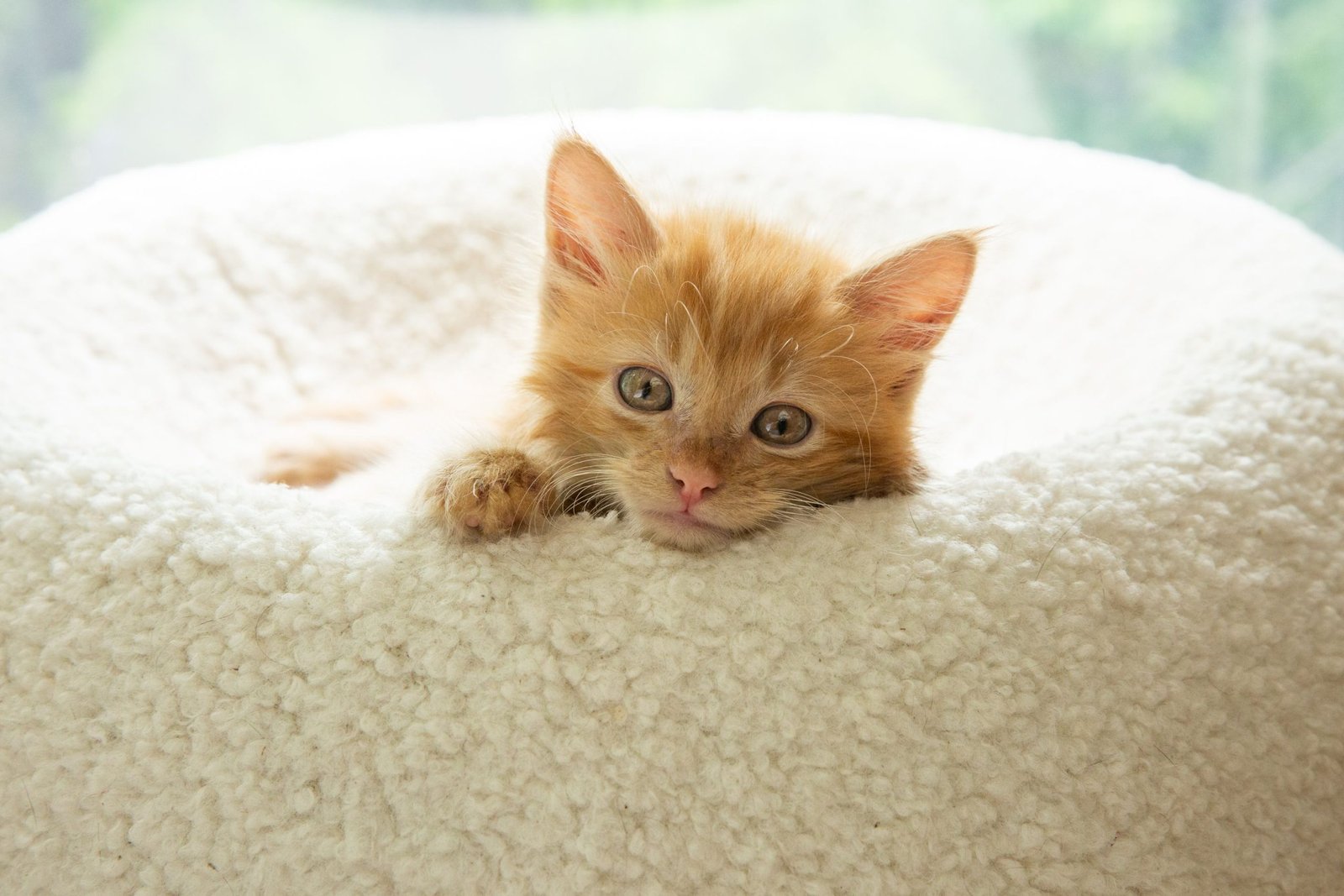Kitten development in the first six weeks of life is crucial as they become more independent, active, and playful. They should be able to clean themselves and use the litter box, and their sibling bonds strengthen through grooming each other.
This is also the age when kittens can run well and engage in playful behaviors. During the first six weeks of a kitten’s life, their growth and development are significant factors that shape their personality and character for the rest of their lives.
Providing them with attention, proper nutrition, and socialization is crucial during this period. Kittens at this stage spend a substantial amount of time suckling their mother and may purr with contentment during this process. Understanding the development milestones of kittens during the first six weeks is essential for their overall well-being and ensuring a smooth transition into adulthood.

Credit: www.maddiesfund.org
Introduction To Kitten Development
[if IE]> <![endif]The first six weeks in a kitten’s life are crucial. During this period, kittens undergo rapid growth and development, both physically and behaviorally. It is during these weeks that the foundation for a kitten’s overall health and socialization is laid.
Understanding the key milestones and requirements of kitten development during this critical stage can help caregivers provide the best care and ensure the long-term well-being of the kittens.
The first six weeks of a kitten’s life are a critical period in their development. Proper care and attention during this time can significantly impact their overall health and behavior as they grow into adulthood.
At this stage, kittens are highly impressionable and adaptable, making it an ideal time for socialization and exposure to various experiences. The interactions they have during this period can shape their future behavior and temperament.
Additionally, adequate nutrition and healthcare during the first six weeks are essential for their physical development and to ensure they reach important milestones such as proper weight gain, neurological development, and the emergence of their baby teeth.
During the first six weeks, kittens go through significant physical and behavioral changes as they progress from helpless newborns to playful and independent individuals.
Physical milestones during this period include:
- Opening their eyes around 1-2 weeks.
- Starting to walk and explore their surroundings between 3-4 weeks.
- Developing baby teeth around 4-6 weeks.
- Begin weaning off of their mother’s milk and transitioning to solid food between 4-6 weeks.
- Gaining weight and growing rapidly.
Behavioral milestones during the initial six weeks include:
- Sleeping for most of the day.
- Interacting and bonding with their mother and littermates.
- Developing basic motor skills and coordination.
- Exploring and playing with their environment.
- Learning proper social behavior, such as grooming and using the litter box.
Ensuring Each Heading Adheres To Html Syntax:
When writing HTML, it is important to follow the correct syntax for headings. The correct syntax for heading tags in HTML is as follows:
This is a heading level 1
This is a heading level 2
This is a heading level 3
By adhering to this syntax, you can ensure proper formatting and structure in your HTML documents, making it easier for search engines to understand and index your content.
Week 1 And 2: Early Development
During the first two weeks of a kitten’s life, they go through crucial early development stages. This is a period of rapid growth and important milestones in both physical and behavioral development. Understanding what happens during this time can help kitten owners provide the necessary care and support for their furry little friends.
Physical Development
Physical development in kittens during the first two weeks is significant. Here are some key aspects of their growth:
- Kittens are born blind and deaf, relying on their sense of touch and smell to interact with their environment.
- Their weight should double within the first week as they gain nourishment from their mother’s milk.
- They start to develop their sense of hearing, although it is not fully developed yet.
- Their baby teeth start to emerge at around 2 weeks old.
Behavioral Development
Behavioral development is also crucial during the first two weeks. Here are some important behaviors to take note of:
- Kittens spend most of their time sleeping, but they may wiggle their limbs and make small cries when handled.
- They devote close to four hours a day to suckling their mother for sustenance.
- Kittens may purr with contentment while nursing.
By understanding and monitoring the physical and behavioral development of kittens during the first two weeks, owners can ensure they provide the appropriate care and support needed for their growth and well-being. Stay tuned for the next stages of kitten development in the coming weeks!
Week 3 To 6: Growing Independence
During weeks 3 to 6, kittens start to develop independence. They can clean themselves, use the litter box, and engage in active play. This is an important stage in their development.
H3: Increasing Activity Levels During the weeks 3 to 6 of a kitten’s life, their independence begins to blossom, leading to increasing activity levels. At this stage, their motor skills are fully developed, allowing them to run, climb, and play with great agility. They may have bursts of energy, zooming around the room, chasing toys, and engaging in playful antics. It’s the perfect time to provide them with plenty of toys, scratching posts, and interactive play sessions to encourage their physical and mental growth. H3: Weaning and Litter Box Training Another significant milestone during weeks 3 to 6 is weaning and litter box training. While the kittens may still nurse occasionally, they will start to show interest in solid food. Introduce them to a high-quality kitten food suitable for their age, gradually replacing nursing sessions with meals. Offer small portions of wet food and provide fresh water at all times. It’s essential to monitor their food intake and ensure they’re gaining weight appropriately. Additionally, this is the ideal time to introduce them to the litter box. Kittens have a natural instinct to bury their waste, and they will begin to imitate their mother’s behavior. Place a shallow litter box filled with kitten-friendly litter in their living area. Show them the litter box and gently guide their paws into the litter. Be patient and reinforce positive behavior with praise and treats. H3: Socialization and Sibling Bonds Socialization and sibling bonds are crucial aspects of a kitten’s development during weeks 3 to 6. As they explore the world around them, their interactions with their siblings play a significant role in shaping their social skills. Kittens learn important lessons through play, such as bite inhibition and communication cues, which will help them navigate social situations later in life. To foster these bonds, provide a safe and stimulating environment where the kittens can interact freely. Encourage supervised play sessions to ensure they learn appropriate play behaviors. It’s important to handle the kittens regularly, ensuring they become accustomed to human touch and develop into well-socialized felines. Spend quality time with each kitten, offering gentle petting and creating positive associations with human touch. In conclusion, weeks 3 to 6 of a kitten’s life are a critical period for their growing independence. By providing stimulating activities, introducing solid food and proper litter box training, and promoting socialization and sibling bonds, you contribute to their overall development and ensure they grow into happy and well-adjusted cats. With the right care and attention, your kitten will thrive during this exciting stage of their growth.:strip_icc()/kitten-development-first-six-weeks-555170_05-5b1700c6fa6bcc00369a1fa4.png)
Credit: www.thesprucepets.com

Credit: dailyinfographic.com
Frequently Asked Questions On Kitten Development In The First Six Weeks Of Life
What Should A 6 Week Old Kitten Be Doing?
At 6 weeks old, a kitten should be able to clean itself, use the litter box, and groom its siblings. It will be very active, playful, and able to run well.
What Age Are Kittens The Hardest?
Kittens are usually the hardest at around six weeks old. At this age, they become more active and playful, and can run well. They start to groom themselves and use the litter box.
Is It Ok To Give Kittens Away At 6 Weeks Old?
It is generally not recommended to give kittens away at 6 weeks old. Waiting until they are at least 8 weeks old allows for proper behavioral development and ensures they have received enough nutrition from their mother’s milk.
What Is The Normal Behavior Of A Newborn Kitten?
Newborn kittens spend most of the day sleeping but may wiggle their limbs and cry if handled. They suckle their mother for about four hours a day and purr with contentment. They become more active, can run and play, and start using the litter box at around six weeks old.
Conclusion
In the first six weeks of a kitten’s life, crucial development takes place. They go from being completely dependent on their mother to becoming more self-sufficient and active. At this age, kittens are running, playing, and starting to groom themselves and their siblings.
It is important to provide them with attention, proper nutrition, and socialization during this period. These early experiences will shape their personality and behavior for the rest of their lives. Take special care during these weeks to ensure the healthy growth and development of your furry friend.

